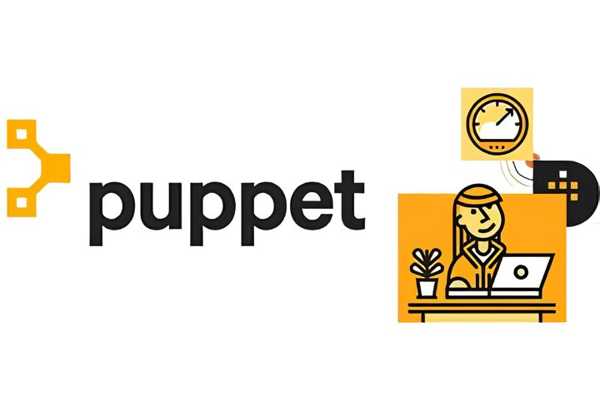Automate Your Finances: How to Get Started
In today's fast-paced world, time is a commodity often in short supply. People constantly look for ways to streamline various aspects of their lives, from meal prep to fitness routines. One area that has seen a transformative shift towards efficiency is personal finance. With the advent of sophisticated tools and platforms, automating your finances is easier than ever.
In today's fast-paced world, time is a commodity often in short supply. People constantly look for ways to streamline various aspects of their lives, from meal prep to fitness routines. One area that has seen a transformative shift towards efficiency is personal finance. With the advent of sophisticated tools and platforms, automating your finances is easier than ever. In this guide, we delve into the world of financial automation tips to help you manage your money seamlessly, allowing you to focus on more meaningful areas of your life. From automating bill payments to setting up automated saving plans, automation not only simplifies financial management but also helps to instill discipline in your spending and saving habits.

Financial automation takes the legwork out of routine and often tedious financial tasks. Automating removes the risk of human error, the temptation to divert funds into non-essential expenditures, and the anxiety of meeting various payment deadlines. Automation in personal finance is not merely a trend; it's fast becoming the new norm. Suppose you're just getting started or contemplating whether to automate your finances. In that case, this comprehensive guide aims to provide actionable financial automation tips to make your economic life more organized, efficient, and virtually worry-free.
With the evolution of technology, financial institutions have made it incredibly simple to automate most aspects of money management. You can schedule everything, from monthly utility bills to periodic investment contributions, to be handled automatically by your bank or a dedicated financial app. This approach eliminates the stress of remembering due dates. It leverages the power of compounding in investments, making your money work harder even while you sleep.
The Pillars of Financial Automation
One of the first things to understand about automating your finances is that it isn't a one-size-fits-all solution. Your financial situation is unique, and therefore, the approach to automation should be tailored to fit your specific needs. However, there are fundamental pillars that underlie most successful financial automation strategies. These pillars include automated bill payments, saving plans, and intelligent investment strategies. By dissecting these pillars, we hope to offer you a template you can customize to suit your circumstances.
Automate Bill Payments: Stress-Free Management
The most immediate benefit of financial automation is the ability to automate bill payments. Consider all your recurring monthly bills, such as rent, utilities, and various subscriptions. Maintaining track of all these bills and their respective due dates can be stressful and time-consuming. Automated bill payments can ensure you get all the due dates, helping you avoid late fees and potential hits to your credit score. Your bank or a specialized financial app can facilitate this. Simply set up a system where the money is automatically withdrawn from your account to pay these bills, and just like that, a significant chunk of your financial management burden is lifted.
Automated Saving Plans: Consistency is Key
When it comes to saving, consistency often trumps the actual amount saved. An automated saving plan can help you maintain this consistency effortlessly. Having a pre-determined amount automatically transferred from your checking account to a savings or investment account eliminates the mental friction of having to decide how much to save each month. This enables you to stick to your saving goals, making the process less daunting. Over time, the power of compound interest will amplify the effects of your consistent saving habits, leading to a more secure financial future.
Innovative Investment Strategies: Automated Yet Flexible
Investing is another area where automation can make a world of difference. While the idea of investing can seem complicated and risky to the uninitiated, automated investment platforms have simplified the process to a large extent. Such media can be programmed to buy, sell, or hold assets based on various triggers like market performance, ensuring that your investments are actively managed without requiring your constant attention. This isn't to say that you should 'set it and forget it'; it's crucial to periodically review your investment strategy to ensure it still aligns with your financial goals.
The Underrated Aspects of Financial Automation

Financial automation is often discussed in terms of its most prominent features, like automated bill payments and saving plans. However, other dimensions of this topic are equally important but less frequently talked about. These include automation for debt repayment, tax optimization, and charitable contributions. Let's dive into these less-explored facets to provide a comprehensive look at how you can fully leverage the power of financial automation.
Automation for Debt Repayment: A Structured Approach
Automating your debt repayment can be a game-changer in a world where many are burdened with student loans, car loans, and credit card debt. Instead of manually distributing your payments, setting up automated payments can help you adhere to a structured repayment plan. Most loan servicers and credit card companies allow you to set up computerized prices that align with your paycheck schedule, ensuring that you make consistent payments without the hassle of remembering dates. This improves your credit score and brings you one step closer to financial freedom.
Tax Optimization: The Proactive Method
When we think of taxes, we often think of the frantic rush during the tax season. However, you can take a proactive approach to tax optimization with financial automation. Estimated tax payments can be automatically set aside each month for freelancers or those with multiple income streams. Tax-advantaged accounts like 401(k) or IRA can also be funded through automated transfers, ensuring you maximize your contributions and tax savings. Think of it as a way to "pay yourself first."
Financial automation is here to stay, and understanding its many facets is essential for anyone looking to improve their financial health. This guide aims to be wholly plagiarism-free and to provide long, in-depth paragraphs to offer you the most comprehensive understanding of the subject matter. By implementing these financial automation tips, you're simplifying your life and taking a significant step toward securing your financial future.




